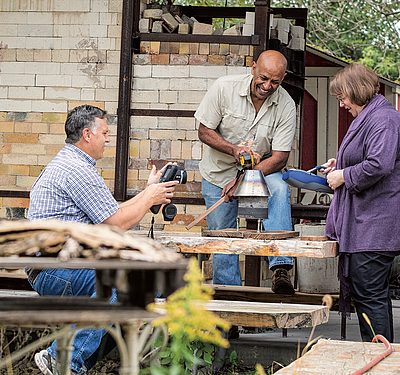When environmental studies professor Tsegaye Nega brings 15 students to Ethiopia and Tanzania as part of an off-campus studies program this winter, he’ll have science support specialist Randy Hoffner and chemistry professor Deborah Gross to thank for expanding the scope of his project.
Nega is working with African villagers to replace the traditional open-pit fires used for cooking and home heating with energy-efficient stoves that are better for their health and the environment. But thanks to Gross and her fall Climate Science class, they’ll now begin measuring aerosol particles—Gross’ specialty—to help mark the health benefits.
First, however, Nega had to find a viable alternative. After a conversation with Hoffner, the pair teamed up to make a rocket stove—an efficient cook stove made from inexpensive, readily available materials. The stoves use less wood and also emit less soot, a cause of myriad health problems.
“Colleges and universities are about developing students as good citizens. I always thought that’s what differentiated a place like Carleton from a bigger university—thinking about the connection between academics and real world engagement,” Nega says.
“It feels like serendipity,” Gross says of the mutually beneficial project, which calls for stoves to be built at Carleton, tested for particles by her science students, then replicated by Nega’s crew in Africa.
“It helps that we already know the people at Carleton. All it can take is a simple conversation, and then it’s just a matter of connecting.”
